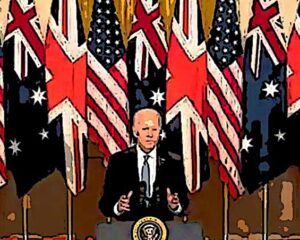Australia’s future maritime warfare capability is now to include the ‘Enhanced Lethality Surface Combatant Fleet’. Requiring, like the AUKUS submarines, ambitious naval acquisition and construction programs with long lead-times before delivery, serious questions are raised about how the ELSCF responds to assessments of Australia’s strategic circumstances – and of the extent to which it would be just another contribution by Australian taxpayers to US military forces.
Read more



















